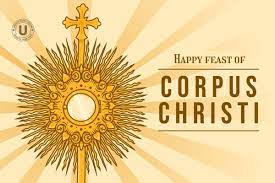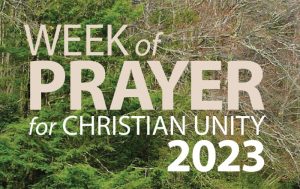 This Gospel is the same as that proclaimed a few weeks ago on the feast of the Sacred Heart. Jesus offers us again: “Come to me – and I will give you rest – my yoke is easy and my burden is light.”
This Gospel is the same as that proclaimed a few weeks ago on the feast of the Sacred Heart. Jesus offers us again: “Come to me – and I will give you rest – my yoke is easy and my burden is light.”
Let me ask you: Have you ever owned a woolen turtle-neck sweater? And, you’re wearing it for the first time? You soon discover that when you turn your head the collar scratches your neck? Wear it too long and you may develop itchy red welts. It looks so warm and cozy in the catalog and now there’s nothing you can do. Your work day is just beginning; you have an important meeting and you don’t have a change of tops with you. You get some relief if you sit perfectly still, for you see, it’s only when we wrestle with a “yoke” that it chaffs your neck.
Too often our first impulse is to complain about all I don’t have or what isn’t going my way. How wonderful life would be if only she would shape up. Have you ever tried to run a three-legged race? Then you know the give and take it requires to match strides. But until you do, you can wind up rolling on the ground and struggling more than once to get up without each pulling the other down.
The burden of ungratefulness weighs heavy on our hearts. When I focus on what irks me about situations or about people and, sadly, forget all the gifts the flow into my life, the chaffing of the rope tied to the gunny sack I’ve loaded on my back will choke me. How quickly it lifts when I consider all that I DO have. When we ease up and take God’s view, the tussle eases. Remember, the yoke “chaffs” until we give up the control we don’t really have anyway.
Jesus saw examples of this everywhere he went. We marvel at Jesus’ powers of observation! How many times must he have gazed out on a field watching a pair of yoked oxen dragging along a heavy cart or trudging to keep pace with a farmer sowing the next crop? He saw the tussle and the back and forth between the pair, only hurting themselves with the push and pull of the yoke until a smooth rhythm was set. It behooves us to listen attentively to Jesus’ words. To hear His invitation, ‘Come to me’ is always an open invitation. At any time, but maybe especially at times like now, when we and our country really need the peace, rest, protection of God’s love. We ask Jesus to come into our hearts and fill our lives with gifts that only God can give us. Remind yourself, especially when life is challenging, that by declaring that “My yoke is easy” Jesus means that whatever God offers us is custom-made to perfectly and personally fit us at this time in our lives.
~Reflection by Sister Roberta Bailey, OSB
Tuesday, July 11, we will celebrate the summer feast of St. Benedict in a special way. Following the 10 a.m. Mass at the Abbey church, the Saint Leo University Student Affairs dept. are hosting the Sisters and Monks at a festive indoor BBQ lunch to mark the day.







